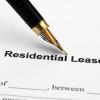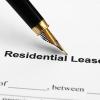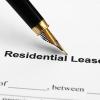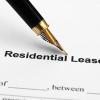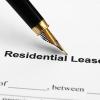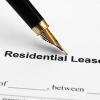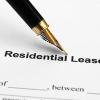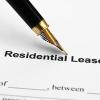Commercial lease in France is regulated by the Law dated 30th September 1954 whose aim is to protect the tenants.
Based on the fact that location and premises are essential to attract clients, the principal provisions of this Law (granted to the tenant) are:
- A statutory minimum duration of nine year tenancy;
- A right or renewal of the lease or an alternatively compensation if renewal is refused;
- A rent increase control system.
As such, any agreement excluding or amending these major rights will be rendered void.
However, to benefit from this protective legislation, tenants have to comply with a number of conditions:
- They must operate a business at the premises where trading with clients and customers. (Accordingly, wharehouses and stock areas are excluded from the scope);
- They must be properly registered to run their business. Failure to register before the end of the duration of the lease leads to extremely severe consequences as the tenant automacally loses his entitlement to renewal. Similarly, where a business is owned in partnership or in joint tenancy, all of the co-owers/partners must be registered even if they are not all active in the business.
Please note that, certain categories of tenants (such as civil companies or professionals known as professions liberals) cannot qualify for a commercial lease, although they are allowed to run their business within the premises.
Duration
In order to ensure continuing business, a minimum of a nine-year tenancy is imposed on the landlord.
However, tenants can terminate the lease at an earlier stage, e.g. every three years provided that they serve proper notice: at least six months prior to the three year term. Specific terms and contents of notice are mandatory and a bailiff (huissier) must be instructed.
Please note that, as a result of a failure to comply with the time limit and required contents, the legal effect of the notice would be postponed to the next three year term. Accordingly, the tenant will have to pay the rent and other financial charges until the end of the next three year term, even if the premises are rented to a new tenant. It is therefore recommended that you make sure to terminate the lease in compliance with the Law (please contact one of our French lawyer in this regard)
Use of the premises
Premises can be used for wholly commercial or for a mixture of business and residential purposes.
Before signing any tenancy agreement, it is highly advisable to check that the landlord has obtained local authority permission to use the premises for commercial purposes.
The lease will then strictly define the nature of business that tenants are allowed to carry out at the premises. However, a clause offering a wide range of activities (such as “tout commerce”, e.g. any kind of business) is permitted.
In case of limited activities, complete change of business or simple additions of new activities, services and products is permissible subject to the landlord’s agreement.
In all cases it is very important to make sure the business is permitted at the specific site by the règlement de copropriété, which regulates the building and its occupiers’ rights and obligations. If prohibited, a neighbour’s claim will automatically lead to business closure.
Selling the lease
Tenants cannot be prohibited from selling their business as a whole, which includes the lease together with elements such as the clientele, brand, reputation and equipment. However, it is very common that tenants are not allowed, in the contract, to sell the lease separately without the business. Changing this in the commercial lease contract is recommended.
Notice of selling must be sent to the landlord in order for him to be aware of the new tenant’s details. Until such notice is served, complying with mandatory forms and contents, the original tenant remains liable for the rent, tax, service charges and all covenants.
Alterations and improvements
Alterations and improvements are governed by the lease. Usually, alterations to the premises are subject to the landlord’s consent which cannot be unreasonably withheld. However, improvements only leading to minor changes are free of license (e.g. painting for example).
Payment of a premium
Some landlords will ask tenants to pay a premium, known as pas-de-porte or droit d'entrée (which can be qualified either as a rent in advance or a compensation for loss suffered by the landlord due to the renewal right burdening his property).
If payment of a premium is requested, it is then necessary to clearly state in the lease which qualification (either payment of rent in advance or compensation for loss suffered by the landlord) is adopted. Since different tax implications and consequences related to the renewed rent occur, it is therefore highly advisable to obtain tailored legal advice to assess the financial issues.
Initial rent and rent review
The initial rent is fixed at a market price. It is usually paid per quarter. Sometimes, rent can consist of a fixed sum together with top-up rent (a variable element based on a percentage of the income generated by the business).
Rent can be reviewed using an index (notably the construction cost index published by INSEE, i.e. the French National Institute of Statistics).
Deposit
A deposit usually represents a quarter of the yearly rent or an equivalent of a 6-month rent at no interest (however, it is mandatory for the landlord to provide interest if the amount of the deposit is in excess of two quarters). It will remain in the landlord’s hands until the end of the lease and will be readjusted by way of the indexation clause.
Service charges
When clearly expressed in the contract, the listed service charges are to be paid by the tenant. They usually include all costs for maintenance of the building.
Repairs
The repairs and works issues are out of the scope of the Law of 30th September 1954. Therefore, it is left to the parties’ negotiation.
Please read the contract carefully in order to ensure that the clauses are very well balanced between both parties and will not represent a real burden for tenants who will have to bear all works including major ones such as structural works of the building, refacing facade of the building, works prescribed by local authorities, etc.
Accordingly, tenants must be very careful in subscribing to these clauses since it can significantly weigh the projected running expenses of the business.
Also, a preliminary check through the building records (such as “Carnets d’entretien de l’immeuble”) and general meetings can sometime give at least some warning of forthcoming works. Ask for these from the landlord, the agent or the building manager.
Tax regarding business premises
Landlords can transfer to tenants the burden of every tax he should usually bear. It is advisable to ask for all tax receipts. The usual taxes are:
- Contribution représentative du droit de bail (tenancy tax)
- Contribution sur les revenus locatifs (tenancy income tax)
- Taxe sur les bureaux (tax on office rental)
- Impôts fonciers (land/council tax)
- Taxe de la ville (local tax)
Renewal and compensation
At the end of the contractual term (usually nine years), the lease does not automatically end. It continues until the tenant or landlord, whoever acts first, serves a notice of renewal that also operates as an alternative offer for compensation.
Indeed, in accordance with the staturory provisions of the Law of 1954, the tenant is entitled to renew the lease. If the landlord opposes the tenant’s claim, he has to offer compensation for loss of business/goodwill.
When renewal is agreed by both parties: in such a case, the big issue remains the question of the new rent. If the lease is at least nine years, but less than twelve years in existence, the Law of 30th September 1954 set up a control system to avoid undue and unpredictable increase of rent. This is called plafonnement:
- he rent increase of the renewed lease is limited if during the past nine (9) years, there has not been any major and significant changes in the area and immediate environment that could benefit the business. In that case, the increase of the rent will be limited to the review index (index of the cost of construction published by the INSEE);
- However, the rent can be fixed at the market rental value if the landlord can prove evidence of significant favourable economic factors, which occurred during the past lease and having positive impact on the business such as massive new construction for office and residential purpose that is likely to have brought new customers to the tenant’s business, new underground station or car park, redevelopment of the area increasing market value, etc.
However, the rent is automatically reassessed without any ceiling when the past lease has lasted more than twelve years.
Most of the time, it is likely that parties will not reach an agreement. They will therefore bring the claim to Court in order to have a new rent fixed. The judge will appoint an independent and impartial surveyor to make a valuation report based on various elements (such as the premises, use and activities permitted, parties’ right and obligations, etc.
If the renewal is refused by the landlord: in this case, he must award compensation to the tenant for loss of business.
The amount of the compensation is determined by the value of the business, tax implications resulting from the change of situation, moving costs, commercial damage and double rent, loss of stocks, etc.
The only situation where tenant is not entitled to compensation is where he/she is in persistent rent arrears or in breach of a major obligation.
In conclusion
The protection offered by the French legislation is very useful and helpful for tenants. Setting up a business is a long and hard commitment from which success and profit are expected. To avoid pitfalls and unwanted problems, be aware of downsides and work towards efficiency and productivity. It is therefore important to be carefully advised by a legal professional specialising in commercial leasing.

